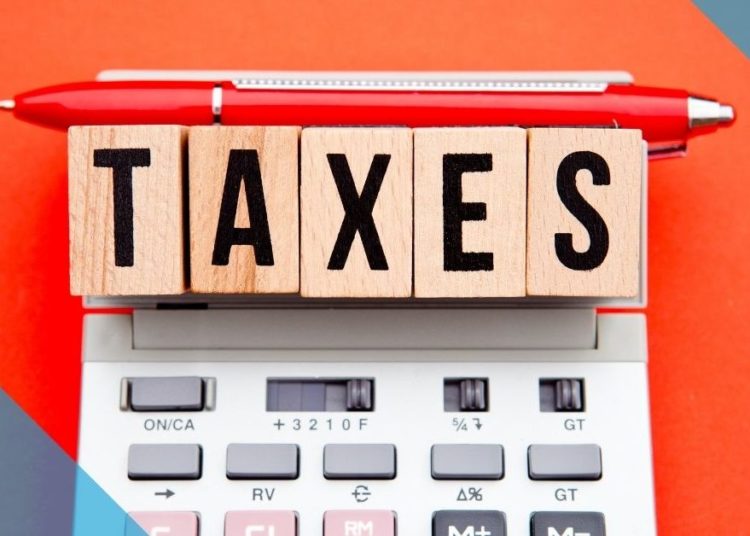Barring last minute change of plans, President Muhammadu Buhari will, soon, send the 2023 budget to the National Assembly for consideration and passage. Drawn from the 2023-2025 Medium Term Expenditure Framework (MTEF), the document made provisions for a whooping N6 trillion for tax waivers.
Minister of Finance, Mrs Zainab Ahmed said the nation would have N12 trillion deficit budget for 2023. Specifically, she said the proposed N19.76 trillion 2023 budget would have a deficit of N12.43 trillion because of projected N6 trillion tax and import duty waivers, and fuel subsidy of over N6 trillion as well, if retained for the whole year.
Clearly, Nigeria is passing through difficult times with corruption, oil theft and rising insecurity hampering efforts to get the required revenue for daily running of government. Times like these require that more than anything else, the managers of the nation’s economy need to think outside the box to work out ways of improving collectible revenue.
We consider it curious that rather than block revenue leakages, government officials and other managers of the nation’s economy, are proposing a whooping N6 trillion for waivers on tariffs and duties. This, in very unambiguous terms, is a whooping N6 trillion forgone revenues.
This newspaper is not oblivious of the fact that all over the world, in a bid to protect local businesses and jobs, governments use import duty waivers, exemptions, and concessions as instruments of economic policy. Waivers are also used to protect local industries, create jobs, and promote exports.
Plausible as the reasons for granting waivers are, Nigeria’s experience leaves much to be desired, as there are genuine concerns that the waivers are subjected to abuse and hence constitute a major drain on the nation’s resources.
We recall that, in 2021, the federal government, through the Nigerian Customs Service, granted N2.29 trillion as tax exemptions. In 2020, the waiver amounted to N779.74 billion. This included Value Added Tax (VAT) relief granted on imports, waivers and concessions on import duties, ECOWAS Trade Liberalisation Scheme, surcharges, Comprehensive Import Supervision Scheme, as well as excise and levies. While Customs granted a waiver worth N2.29 trillion, its revenue collection for 2021 stood at N1.34 trillion suggesting, clearly, that the exemption was a huge amount of revenue lost.
Unarguably, granting waivers on tariffs and duties have been increasingly popular. But it is, also, a disturbing method of misappropriating government revenue in Nigeria. In the past, because of the largesse from oil, Nigeria could afford to grant such waivers. But the current realities demand a re-examination of that policy.
Perhaps this informed the decision of the Senate, through its Committee on Finance, to kick against the proposed N6 trillion tax and import duties waivers proposed for the 2023 budget.
In the opinion of this newspaper, the amount is huge and unjustifiable considering the fact that the government is in a crisis as far as revenue generation is concerned. There is, therefore, a compelling need for a downward review of the proposed waiver.
Once the government addresses the concerns over abuse of waivers and importantly, prevents companies allegedly abusing the privilege, more money will be generated as revenue to fund the budget with less deficit and borrowings.
However, and most importantly, the government must critically look into the prevalent abuse of tax credit in the face of the widespread trepidations that most of the beneficiaries of the waivers rarely plough back the accrued gains.
Since 2023 is an election year and like most Nigerians, we are tempted to ask if the proposed waiver is not part of the ploy by the ruling party to mop up funds to finance the election. Tellingly, the granting of waivers to individual operators in an industry rather than to the entire industry distorts national economic and industrial development, and hence defeats the whole essence of granting such waivers.
Customs’ management and, indeed, the ministry of finance whose responsibilities it is to implement the waiver when granted by the president, must be ready now more than ever before, to give a full disclosure of the companies likely to benefit from the planned waiver. It, certainly, will not amount to asking too much to demand full details of the companies that are scheduled to benefit from the planned waiver.
In our considered opinion, Nigerians deserve to know how and why this volume of fund is appropriated as gift to individuals and groups who stand to gain from it personally. The National Assembly owe Nigerians a duty to get to the bottom of this outrage. The country cannot be borrowing at huge interests that make all of us perennial debtors and at the same time conducting its affairs in a manner that suggests a drunken sailor mentality.
We’ve got the edge. Get real-time reports, breaking scoops, and exclusive angles delivered straight to your phone. Don’t settle for stale news. Join LEADERSHIP NEWS on WhatsApp for 24/7 updates →
Join Our WhatsApp Channel










